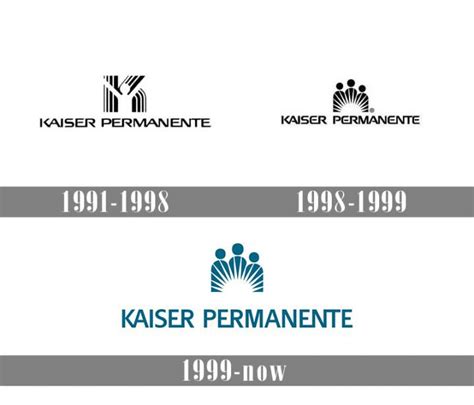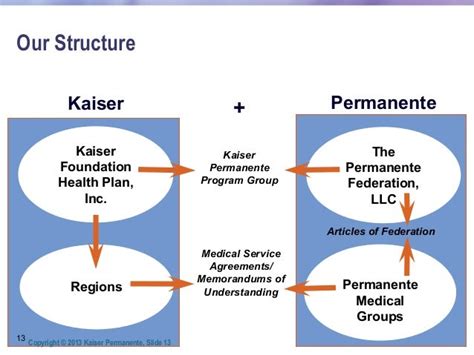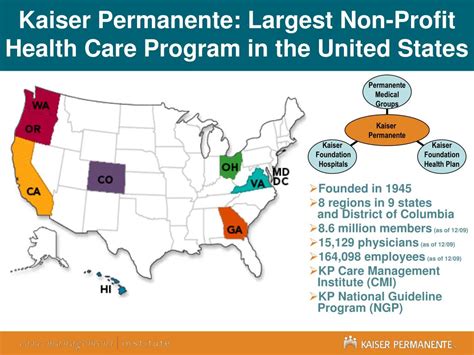Intro
Kaiser Permanente is a unique healthcare organization that has been a topic of interest for many due to its innovative approach to healthcare delivery and its business model. One of the most common questions about Kaiser Permanente is whether it is a non-profit organization. In this article, we will delve into the details of Kaiser Permanente's business model and explore its status as a non-profit organization.
The Importance of Understanding Kaiser Permanente's Business Model
Kaiser Permanente is a healthcare organization that provides medical care to millions of people across the United States. It is known for its high-quality care, innovative approach to healthcare delivery, and commitment to improving the health of its members. However, Kaiser Permanente's business model is complex, and understanding its status as a non-profit organization requires a closer look at its structure and operations.
Kaiser Permanente's Structure and Operations
Kaiser Permanente is a group practice prepayment plan, which means that it is a healthcare organization that provides medical care to its members in exchange for a prepaid fee. The organization is made up of three main entities: the Kaiser Foundation Health Plan, the Kaiser Foundation Hospitals, and the Permanente Medical Groups.
The Kaiser Foundation Health Plan is a non-profit organization that provides health insurance to Kaiser Permanente members. The Kaiser Foundation Hospitals are a non-profit organization that owns and operates the hospitals and medical facilities used by Kaiser Permanente. The Permanente Medical Groups are a partnership of physicians who provide medical care to Kaiser Permanente members.

Is Kaiser Permanente a Non-Profit Organization?
Kaiser Permanente is often referred to as a non-profit organization, but this is not entirely accurate. While the Kaiser Foundation Health Plan and the Kaiser Foundation Hospitals are non-profit organizations, the Permanente Medical Groups are a partnership of physicians that operates as a for-profit entity.
In 2019, Kaiser Permanente reported revenues of $88.7 billion and net income of $6.3 billion. While the organization does not distribute its profits to shareholders, it does use its net income to invest in its operations, improve its services, and provide charitable donations to the community.
Benefits of Kaiser Permanente's Business Model
Kaiser Permanente's business model has several benefits that contribute to its success. One of the main benefits is its ability to provide high-quality care at a lower cost. By integrating its health plan, hospitals, and medical groups, Kaiser Permanente is able to reduce administrative costs and improve the efficiency of its operations.
Another benefit of Kaiser Permanente's business model is its ability to invest in its services and facilities. The organization's net income allows it to invest in new technologies, improve its facilities, and expand its services to meet the needs of its members.

Challenges Facing Kaiser Permanente
Despite its success, Kaiser Permanente faces several challenges. One of the main challenges is the increasing cost of healthcare. As healthcare costs continue to rise, Kaiser Permanente must balance its need to provide high-quality care with its need to control costs.
Another challenge facing Kaiser Permanente is the changing healthcare landscape. The Affordable Care Act and other healthcare reforms have changed the way healthcare is delivered and paid for. Kaiser Permanente must adapt to these changes and find ways to remain competitive in a rapidly changing market.
How Kaiser Permanente's Non-Profit Status Affects Its Operations
Kaiser Permanente's non-profit status has a significant impact on its operations. As a non-profit organization, Kaiser Permanente is exempt from paying federal income taxes. This allows the organization to reinvest its net income in its operations and services.
Kaiser Permanente's non-profit status also affects its governance structure. The organization is governed by a board of directors that is responsible for overseeing its operations and making strategic decisions. The board of directors is made up of physicians, business leaders, and community representatives who are committed to Kaiser Permanente's mission and values.

Impact on Healthcare Delivery
Kaiser Permanente's non-profit status has a significant impact on healthcare delivery. The organization's focus on providing high-quality care at a lower cost has led to innovations in healthcare delivery, such as the use of electronic health records and telemedicine.
Kaiser Permanente's non-profit status also allows it to invest in community health programs and charitable donations. The organization has a long history of giving back to the community, and its non-profit status allows it to continue this work.
Conclusion
In conclusion, Kaiser Permanente is a unique healthcare organization that operates as a non-profit entity. While the organization's business model is complex, its non-profit status allows it to focus on providing high-quality care at a lower cost. Kaiser Permanente's commitment to its mission and values has led to innovations in healthcare delivery and a strong reputation for quality care.
We hope this article has provided you with a better understanding of Kaiser Permanente's business model and its status as a non-profit organization. If you have any questions or comments, please don't hesitate to reach out to us.

Final Thoughts
Kaiser Permanente's non-profit status is an important aspect of its business model. The organization's focus on providing high-quality care at a lower cost has led to innovations in healthcare delivery and a strong reputation for quality care.
We encourage you to share your thoughts and opinions on Kaiser Permanente's non-profit status. Do you think the organization's non-profit status has an impact on its ability to provide high-quality care? Let us know in the comments below.
Is Kaiser Permanente a non-profit organization?
+Kaiser Permanente is a non-profit organization, but it is not entirely accurate. While the Kaiser Foundation Health Plan and the Kaiser Foundation Hospitals are non-profit organizations, the Permanente Medical Groups are a partnership of physicians that operates as a for-profit entity.
What are the benefits of Kaiser Permanente's business model?
+Kaiser Permanente's business model has several benefits, including its ability to provide high-quality care at a lower cost, invest in its services and facilities, and adapt to changes in the healthcare landscape.
How does Kaiser Permanente's non-profit status affect its operations?
+Kaiser Permanente's non-profit status allows it to reinvest its net income in its operations and services, and it is exempt from paying federal income taxes. The organization's non-profit status also affects its governance structure and its ability to invest in community health programs and charitable donations.
